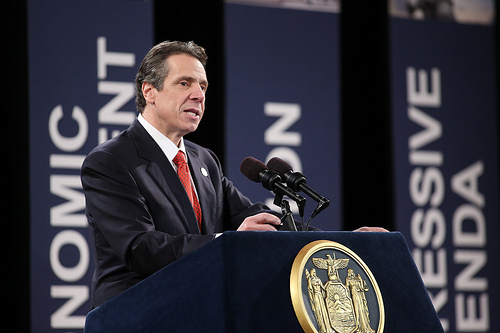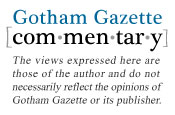
Politicians weigh means against ends every day. It’s part of the job description. In a masterful film, Steven Speilberg showed us how Lincoln balanced means and ends as he sought the abolition of slavery. The message: bend the rules, but don’t break them: trading jobs for votes was O.K. to pass the 13th amendment; buying them for cash, not O.K. It worked. History was made.
We are not hearing too much these days about New York state government being dysfunctional. Fiscal discipline has been established. Gay marriage was passed. A new decentralized regional economic development paradigm was put in place and made to work. After years of wrangling, scandal and stasis, Gov. Andrew Cuomo has shown that New York State government can get things done.
 He saw another opportunity to get things done in the tsunami of public demand for action in response to the tragic massacre of children at Newtown Connecticut. Though gun control was not on his announced agenda for the 2013 legislative session, he promised “the toughest assault weapon ban in the nation.” Cuomo wanted The New York SAFE Act passed fast — both because the iron was hot, and because of the danger that gun control would preempt his pre-laid plans for the session. And he wanted it passed first: before any other governor; before the president. To restore New York’s leadership, he said. To elevate his own political prospects, others opined.
He saw another opportunity to get things done in the tsunami of public demand for action in response to the tragic massacre of children at Newtown Connecticut. Though gun control was not on his announced agenda for the 2013 legislative session, he promised “the toughest assault weapon ban in the nation.” Cuomo wanted The New York SAFE Act passed fast — both because the iron was hot, and because of the danger that gun control would preempt his pre-laid plans for the session. And he wanted it passed first: before any other governor; before the president. To restore New York’s leadership, he said. To elevate his own political prospects, others opined.
The governor lined up the votes, and issued a Message of Necessity. By this means the constitutional three day waiting period in the Legislature for acting on legislation was bypassed. No matter that Cuomo had previously been critical of the use of such messages in the absence of a true emergency, and in fact had refused to issue one while still passing a timely budget last year. The gun control bill passed. The end justified the means.
When things seem to be working, governmental structures and processes are a concern for a few professors, a few lawyers, an occasional elected official and a handful of others organized in so-called “good government’ (goo goo) groups. Legislators and lobbyists don’t usually embrace changes in ways of doing business that that they know intimately, and that have made them winners. Their mantra: “If it ain’t broke, don’t fix it.”
Cuomo came into office when things were widely believed to be broken. His key campaign policy document, The New New York Agenda, embraced a great range of structural reforms in state and local government. Thus far, results have been disappointing. Government reform goals – means – have been traded for fiscal and programmatic goals — ends. The constitutional amendment on legislative redistricting, and now scheduled for a referendum vote in 2014, is a prime example. It does not give us a neutral process. The Legislature remains in control, with the Republicans in the Senate, teetering on the abyss, gaining an insurance policy against Democrats doing unto them in the future what they had always done to Democrats in the past. Hardly reform.
[Editor's Note: Read a letter from Citizens Union and the League of Women Voters on why the constitutional amendment on legislative redistricting was a victory for reform.]
The simple message: making government work is the enemy of reforming government, because it signals — falsely — that institutions and processes need no attention.
Another process change essential for democratizing our politics, campaign finance reform, will again be considered this year. Perhaps with Gov. Cuomo’s leadership, some progress will be made. Yet the agenda is packed, and the opportunities for tradeoffs abound. And even if the influence of big money in our politics can be mitigated through legislation, we still will have what Professor Peter Galie has begun to call our “Potemkin constitution,” full of provisions that have been emptied of meaning through practice or interpretation. We still have a Legislature too diminished in budgetary powers. We still have a judicial system that is in needed of serious structural reform. We still need to give the governor better tools for reorganizing the executive branch.
The “means” of government, how things are structured and should work, is the special province of the state constitution. In the New NY Agenda, Cuomo called for a people’s constitutional convention to address the big “means” questions we face. Cuomo’s success in making our flawed system work does not diminish the urgent need to make that system better. The next time we have a real chance will be in 2017, when the constitution requires that the automatic constitutional convention vote be held.
The opportunity to make the “means” of state government New York’s foremost concern presents Andrew Cuomo with a rare chance for truly transformative leadership: a Lincolnesque moment. Will he seize it?




